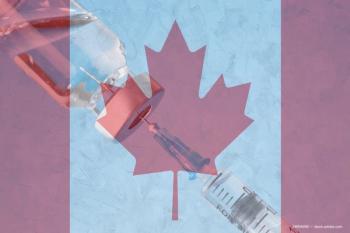
Company seeks first FDA-approved ophthalmic formulation of bevacizumab for use in retinal indications
Patient enrollment for the NORSE 2 clinical trial has been completed, with safety and efficacy data expected to be reported in the third quarter of 2021.
Outlook Therapeutics Inc. has completed patient enrollment for the NORSE 2 clinical trial as it works to develop the first FDA-approved ophthalmic formulation of bevacizumab for use in retinal indications.
Bevacizumab-vikg (ONS-5010/Lytenava, Outlook Therapeutics Inc.) is the investigational ophthalmic formulation of bevacizumab under development to be administered as an intravitreal injection for the treatment of wet AMD and other approved retinal diseases.
“We are extremely grateful to the patients and medical staff who continue to take part in this study, even amidst the effects of the COVID-19 pandemic,” said Lawrence A. Kenyon, president, CEO and CFO of Outlook Therapeutics, in a prepared statement. “The hard work and dedication shown by these individuals have made it possible for us to achieve this important milestone, which now starts the clock to the completion of the study and to our reporting of pivotal data, expected in the third calendar quarter of 2021.”
According to Outlook Therapeutics, the NORSE 2 clinical trial commenced patient enrollment in July 2019. Due to the number of patients in screening at the time of achieving the trial’s stated goal of enrolling 220 patients in the study, Outlook Therapeutics has enrolled 227 patients at 39 clinical trial sites in the United States.
The company noted that patients in the trial are being treated for 12 months.
Moreover, the primary endpoint for NORSE 2 is the difference in proportion of patients who gain at least 15 letters in best-corrected visual acuity at 11 months for ONS-5010 dosed on a monthly basis, compared with ranibizumab (Lucentis, Genentech), which is being dosed quarterly per the PIER regimen.
Outlook Therapeutics noted it expects to report pivotal safety and efficacy data in the third calendar quarter of 2021.
According to Mark Humayun MD, medical advisor for Outlook Therapeutics, the use of anti-VEGF therapy continues to be the standard of care for many ophthalmic diseases within the retina community.
“Given the high cost of the present FDA-approved anti-VEGF therapies, many physicians have turned to off-label repackaged bevacizumab supplied by compounding pharmacists,” Humayun said. “There is significant unmet patient need for an FDA-approved bevacizumab for use in treating retinal diseases.”
Humayun said bevacizumab-vikg, if approved, would offer clinicians a “safe and effective, on-label anti-VEGF therapy option across the spectrum of retinal care.”
According to the statement, Outlook Therapeutics intends to complete development of ONS-5010 for submission to the FDA as a new BLA under the 351(a) PHSA regulatory pathway for the treatment of wet AMD and also has plans to submit for regulatory approvals in Europe and Japan, as well as other countries.
The NORSE 1 clinical trial completed enrollment in August 2019 and is on pace to report topline data in August 2020. The clinical trial enrolled a total of 61 treatment naïve and previously treated patients at 9 sites in Australia.
According to the company, NORSE 1 will provide initial safety and efficacy data for ONS-5010 in wet AMD patients for ONS-5010 dosed monthly compared with ranibizumab dosed using the PIER alternative dosing regimen of 3 monthly doses followed by quarterly dosing.
In a statement, Kenyon also noted that the company is preparing to initiate the NORSE 3 open-label study, which is meant to ensure enough patients have been exposed to ONS-5010 to meet the requirements for Outlook Therapeutics’ planned BLA submission next year.
“We expect to commence NORSE 3 in the fourth calendar quarter of 2020,” he said in the release.
The NORSE 3 open-label safety study will be conducted to ensure the adequate number of safety exposures to ONS-5010 are available for the initial regulatory filings.
In total, about 180 patients are expected to be enrolled in several different vascular and inflammatory retinal diseases where an anti-VEGF drug can be used as a therapeutic option. Patients in NORSE 3 will receive 3 doses of ONS-5010 over 3 months.
“We believe there is a sizeable market opportunity for ONS-5010 which, if approved, will be a cGMP-produced, responsibly priced, on-label ophthalmic formulation of bevacizumab to treat retinal diseases—an option that is not currently available,” Kenyon concluded in a release. “We are dedicated to bringing ONS-5010 to market as quickly and efficiently as possible so that patients can benefit from the safety and reliability of an FDA-approved product.”
Newsletter
Don’t miss out—get Ophthalmology Times updates on the latest clinical advancements and expert interviews, straight to your inbox.





























